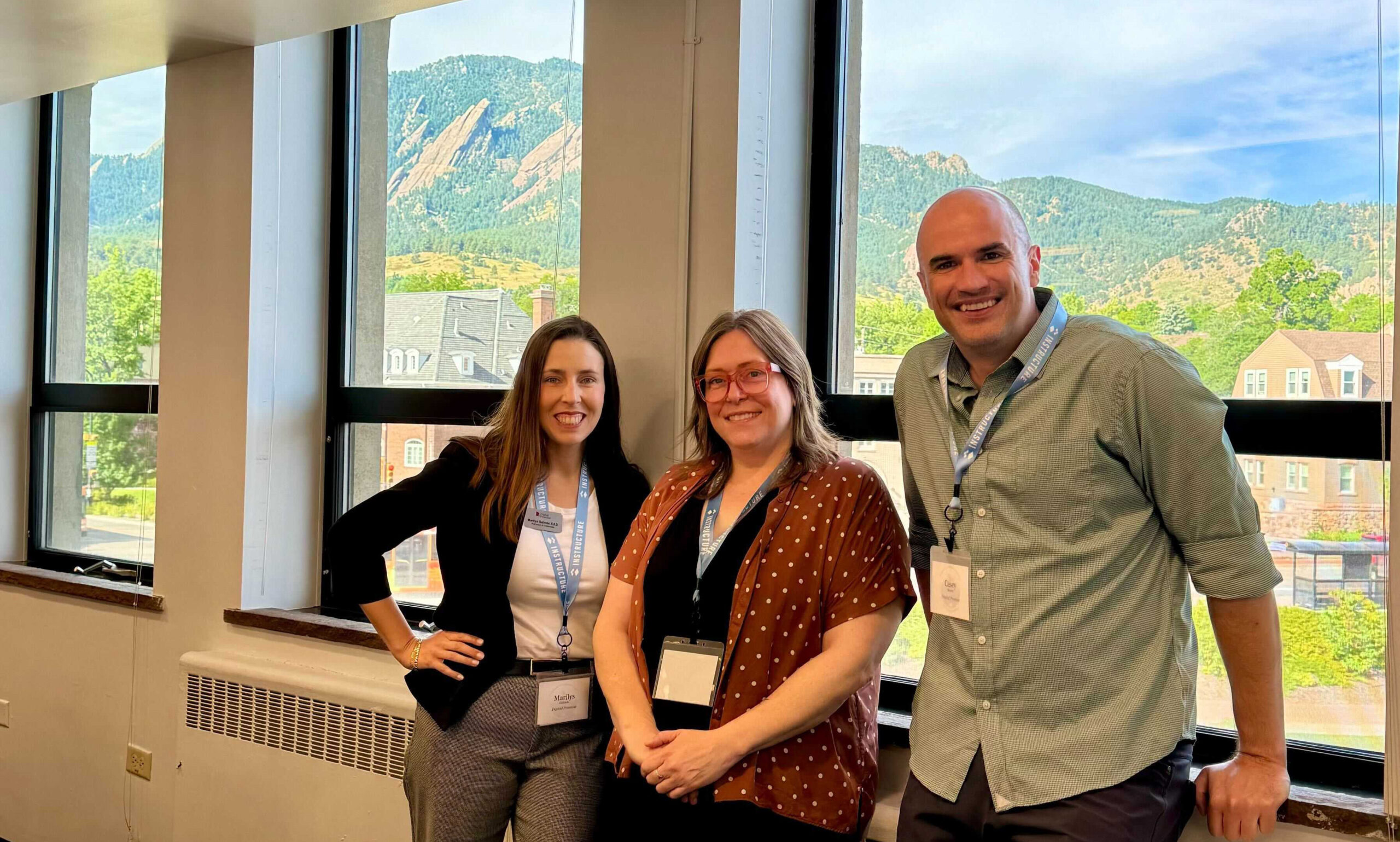

(From left to right) Members of the Digital Promise’s Credentials team, Marilys Galindo, Ashley Miller, and Casey Baxley in attendance at the Badge Summit 2024 in Boulder, Colorado.
The Credentials team shared their reflections from the Badge Summit:
Ashley Miller, Program Manager, Credentials
My self-issued badge for this week is, Idea Absorber! As someone new to this space, I was excited to immerse myself in the ideas and energy of the Badge Summit and its participants, speakers, and vendors. During my time at the Badge Summit, I was able to think deeply about two ideas that interest me a great deal. First, what can Digital Promise do to help our partners reach their sustainability goals for their micro-credential programs? Second, how do we find new ways to contribute meaningfully to this community of researchers, peers, and practitioners? These questions have provoked some exciting ideas and plans as we head into goal setting for 2025.
Casey Baxley, Partnerships Manager, Credentials
A few themes stood out to me at this year’s Badge Summit, the first being trust. An increasingly diverse array of stakeholders in the field are joining formal networks to develop shared practices for the recognition and verification of digital credentials. The second theme is failing forward. In one memorable panel, brave participants shared stories of badging initiatives gone wrong and reminded us that we have to be willing to take some risks and learn from them to move this work forward. The last theme is adapting: higher education institutions, like the University of Nebraska, are not only integrating industry certifications into traditional coursework but also using real-time labor market analytics tools to understand which skills are most in-demand in their regions and developing corresponding micro-credentials for learners at more affordable price points.
Marilys Galindo, Senior Research Project Manager, Credentials
A director of a university presenting at the summit stated, “You have to sit in the problem long enough to start designing a solution.” As individuals and organizations sit in the problem, we should focus on thoroughly understanding the problem and whom the solution is for. Knowing the end-user is critical to the product or service’s success, or lack thereof. Limiting this time or rushing it removes the opportunity to understand critical components. As more education institutions and employers embrace micro-credentials, it is important to design them with the learner, not for them, which will only be possible by sitting in the problem with those most affected long enough.
The Credentials team conducted two presentations during the Badge Summit.

(From left to right) Casey Baxley and Ashley Miller during their session, “Best Practices for Developing Learner-Centered Micro-credential Strategy.”
Casey Baxley, partnerships manager, and Ashley Miller, program manager, led a rapid-fire discussion titled, “Best Practices for Developing Learner-Centered Micro-credential Strategy,” which provided an overview of key strategies and encouraged attendees to highlight other best practices for learner-centered micro-credentials. Learner-centered micro-credentials continue to play a crucial role in shaping the trajectory of competency-based learning. An effective support system that includes coaching, growth-based assessment feedback, and recognition greatly enhances learners’ ability to obtain micro-credentials successfully.

(From left to right) Marilys Galindo and Ashley Miller during their session, “A Decade of Digital Badging: Unveiling Insights from Power Earners, Workforce Explorers, and Student Earners.”
Marilys Galindo, senior research project manager, and Ashley Miller, led a panel discussion titled, “A Decade of Digital Badging: Unveiling Insights from Power Earners, Workforce Explorers, and Student Earners.” It’s been 10 years since Digital Promise launched digital badging. During this time, learners have found and accessed digital credentials to support their career pathways. On the other hand, not everyone has been exposed to micro-credentials (MCs), and there is work to be done. This session focused on preliminary research findings that shed light on three distinct groups.
It is always a wonderful time to visit the mountains for the Badge Summit. The team is looking forward to attending next year’s tenth annual Badge Summit!
Digital Promise has been a pioneer in competency-based micro-credentials and has more than 10 years of experience in supporting organizations with their micro-credentialing needs. If you want to learn more about Digital Promise’s micro-credential services, please contact us at microcredentials@digitalpromise.org.